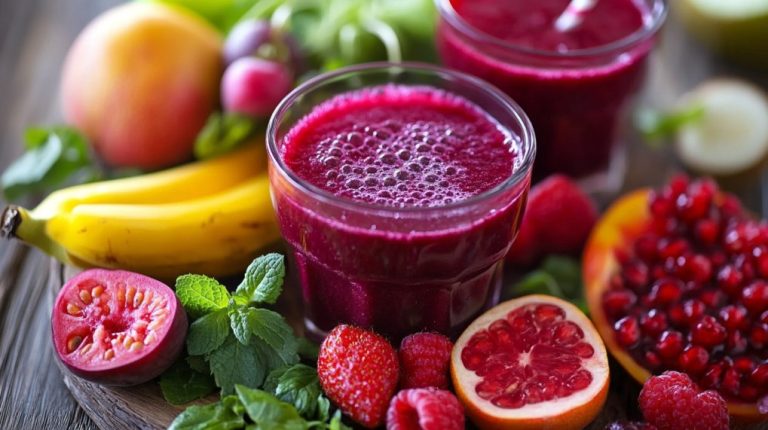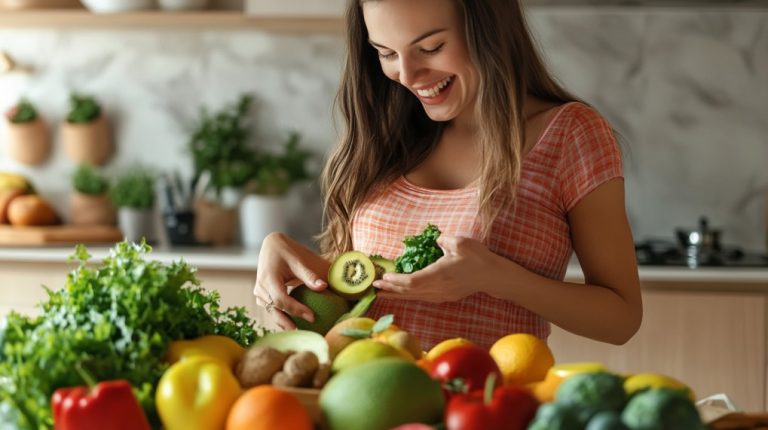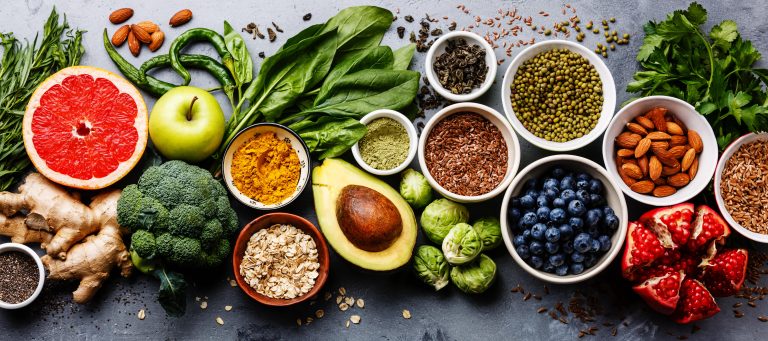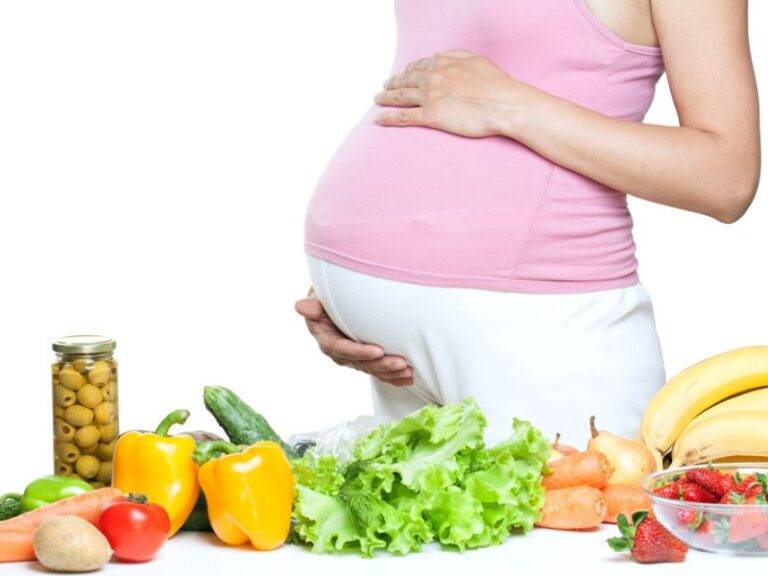Iron plays a major role in the inner workings of the human body. It is an essential nutrient that helps produce hemoglobin – the protein present in red blood cells responsible for carrying and supplying oxygen throughout the body. Lack of proper iron makes your body weak, causing fatigue and anemia. When it comes to pregnant women, iron is of the highest importance as it supports fetal development, making sure that the growing baby gets good amounts of oxygen, and supporting proper brain growth.
Throughout this blog, we will look at ways to meet the increased iron requirements in expecting mothers through iron-rich foods and other practical tips to absorb maximum amounts of iron for both the mother and baby.
Understanding Iron and Its Importance in Pregnancy
Iron is essential for maintaining proper health during the pregnancy period. It helps with the increased demands of both the mother’s body and the growing baby. Let us understand and explore the criticality of iron, how much iron is typically required, and the risks associated with the lack of required amounts of iron,
Why Do Pregnant Women Need More Iron?
During pregnancy, your body adapts and undergoes significant changes to cater to the needs of your growing baby. Let us look at how iron plays a key role in this process:
Increased Blood Requirement: As your body requires more blood to supply oxygen and nutrients to your growing baby, it requires extra iron for this process.
Oxygen Supply: Sufficient amounts of iron make sure that the required amounts of oxygen are carried to your organs as well as to your baby.
Fetal Development: Iron supports the development of the placenta as well as the overall growth of the baby.
Recommended Daily Iron Intake for Pregnant Women
The recommended daily iron intake for an average pregnant woman is about 27 mg per day. This is more than double the iron intake required for a non-pregnant woman. But this can vary depending on the source of iron.
Heme Iron or Animal-based iron: It is found in foods such as meat, poultry, fish, and other animal-based sources. Heme iron can be easily absorbed by the human body.
Non-heme Iron or Plant-based iron: It is found in beans, lentils, spinach, fortified cereals, and other plant-based sources. Non-heme iron takes relatively more time to be absorbed by the human body but is a great source of iron, especially in the case of vegetarians.
What Happens If You Have Low Levels of Iron During Pregnancy?
Low iron levels during pregnancy can lead to anemia – which poses a major risk to the growth and development of the baby. In the case of the mother, anemia can cause constant fatigue and heighten the risk of infections. Anemia can also increase complications at the time of delivery. Severe anemia can affect the mother’s overall health, making it hard to cope with the demands of childbirth.
Insufficient iron levels can cause major consequences for the baby – low birth weight, increased chances of premature birth, and cause delays in the development of the baby. The lack of iron can be detrimental for the baby and affect their long-term health as it hinders the supply of proper oxygen as well as the development of the baby’s brain. Obtaining proper amounts of iron is important. Moreover, it is a requirement for a healthy pregnancy and the well-being of the mother and the baby.
Best Iron-Rich Foods for Pregnancy
Meeting your daily iron requirements during pregnancy is instrumental for a healthy pregnancy as well as a healthy baby. We can divide iron-rich foods into two major categories, depending on their sources: Heme iron – which is animal-based, and non-heme iron – which is plant-based. Heme iron has been observed to be easily absorbed by the body, while non-heme iron takes more time to be absorbed by the body. But this process can be sped up by pairing non-heme foods with foods rich in vitamin C. Find below a detailed list of the best iron-rich foods that can help you attain a healthy pregnancy:
Heme Iron Sources ( Animal-based )
Heme iron is sourced from animal-based foods and is relatively bioavailable – making it easier for your body to digest and absorb. Following are some good sources for heme iron:
Lean Red Meat: Beef, lamb, and liver are packed with heme iron. However, make sure that you consume less amounts of liver, as it is a good source of vitamin A, which can be harmful in excess during pregnancy.
Poultry: Chicken and turkey are great options for heme iron. Try to consume more dark meat as it contains more iron compared to white meat.
Seafood: Salmon, sardines, and shellfish like clams and mussels are rich in iron. Make sure to choose low-mercury options and consume only well-cooked seafood to ensure safety.
Non-heme Iron Sources ( Plant-based)
Non-heme iron is sourced from plant-based foods. Non-heme iron is relatively less easy to absorb by itself, but pairing it with foods high in vitamin C can enhance its absorption rates. While non-heme iron is tough to absorb, it is an important source of iron for vegetarians:
Dark Leafy Greens: Spinach, kale, and Swiss chard are nutrient-dense and good sources of iron.
Legumes: Lentils, chickpeas, and black beans are rich in iron as well as high in protein and fiber.
Nuts and Seeds: Pumpkin seeds, cashews, and almonds are excellent snacks that provide iron along with healthy fats.
Dried Fruits: Raisins, apricots, and prunes are sweet, portable, and packed with iron, making them a great addition to your diet.
Enhancing Iron Absorption
Non-heme sources of iron take more amount of time to be absorbed by the body. Embracing healthier dietary practices and habits can boost iron absorption and help you through a healthier pregnancy. Let us take a look at elements that can help you as well as hinder the process of iron absorption:
Vitamin C
Vitamin C is a powerful component that boosts the absorption of iron, especially when it comes to non-heme iron. It works by converting iron into a form that is more easier to be absorbed by the body. Here’s how to enhance your iron absorption with vitamin C:
Vitamin C- Rich Foods: Citrus fruits – oranges, lemons, grapefruits, bell peppers, tomatoes, strawberries, broccoli – these foods are excellent sources of vitamin C.
Pairing Vitamin C Foods with Iron: By combining non-heme iron-rich foods with vitamin C-rich foods, you can enhance the absorption of iron. For example, adding a squeeze of lemon to your spinach salad, having orange juice with dried fruits, etcetera,
Foods that Hinder Iron Absorption
While some foods help boost iron absorption, some foods work against it. These foods should be fully avoided by pregnant women, as they can interfere with the body’s ability to absorb iron effectively. Find such foods below:
Tea and coffee: These contain compounds called tannins and polyphenols, which can bind to iron, leading to reduced absorption rates. Pregnant women should avoid drinking tea or coffee with meals or immediately after.
Calcium-rich foods: Dairy products like milk, cheese, and yogurt, as well as calcium supplements, can inhibit iron absorption when consumed in large amounts alongside iron-rich meals. Try to space out your intake of calcium and iron by a few hours.
Meal Ideas For An Iron-Rich Pregnancy Diet
Maintaining a balanced and iron-rich diet during pregnancy can feel like an arduous task. With help from a nutritionist for pregnancy can help you curate delicious and nutritious meals that meet your daily iron requirements. Find below a list of potential full-day meal ideas that can provide pregnant mothers with the appropriate levels of iron:
Breakfast
Oatmeal with nuts and dried fruits: Top your oatmeal with almonds, pumpkin seeds, and a handful of raisins or dried apricots. Pair it with a glass of orange juice for a vitamin C boost to enhance iron absorption.
Lunch
Grilled chicken salad with spinach, quinoa, and bell peppers: Combine iron-rich spinach and quinoa with grilled chicken (a heme iron source) and add vitamin C-rich bell peppers for better absorption. Drizzle with a lemon vinaigrette for an extra vitamin C kick.
Dinner
Lentil soup with whole grain bread and a side of sautéed kale: Lentils are an excellent source of non-heme iron, while whole grain bread adds an extra iron boost. Sautéed kale provides additional iron, and a squeeze of lemon juice over the kale enhances absorption.
Snacks
Almonds: A handful of almonds is a quick and easy iron-rich snack.
Hummus with whole wheat pita: Chickpeas in hummus provide non-heme iron, and whole wheat pita adds an extra iron boost.
Smoothie with berries and spinach: Blend spinach (iron) with vitamin C-rich berries like strawberries or blueberries for a refreshing and nutrient-dense snack.
Iron-Rich Diet Plans with Qua Nutrition
Ensuring adequate iron intake during pregnancy is essential for the health and well-being of both the mother and the growing baby. Iron supports oxygen transport, fetal development, and overall energy levels, making it a cornerstone of a healthy pregnancy diet. By incorporating a variety of iron-rich foods, both heme and non-heme sources, and pairing them with vitamin C-rich options, you can maximize iron absorption and meet your daily requirements. Avoiding inhibitors like tea, coffee, and calcium-rich foods during iron-heavy meals further enhances absorption.
At Qua Nutrition, we specialize in providing personalized diet plans and nutritional counseling tailored to your unique needs during pregnancy. We are the top Nutritional clinic in India with branches in major cities like Mumbai, Bangalore, and Kolkata and also provide service all across the world with our online consultationOur nutritionists for prenatal are here to make sure that you and your baby receive the best possible nutrition at every stage. Contact us at Qua Nutrition today to schedule an online consultation for a healthy and fulfilling pregnancy journey.









